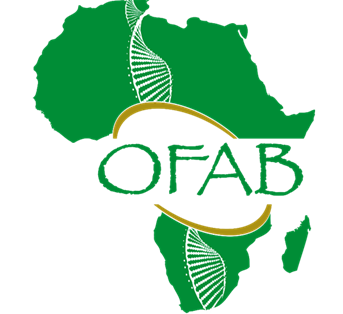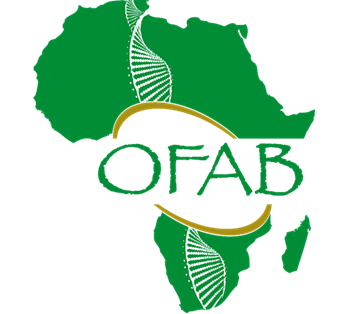The Open Forunm on Agricultural Biotechnology (OFAB) in Africa
Background Information
At the turn of this century, biotechnology emerged as a powerful tool that has contributed to increased agricultural productivity in many countries. Since 1996, biotechnology-derived crops have been commercially planted, and their adoption has been growing steadily. They are now planted by over 16.7 million farmers in 29 countries, covering more than 160 million hectares. (ISAAA 2011) Eleven countries growing these crops are from the developing world, for example, Brazil.
The intense debate over agricultural biotechnology and its application focuses mainly on hypothetical risks and questions related to value, safety and impact (agronomic, economic and environmental). However, the last sixteen years have seen many of these questions put to rest. Numerous studies and evidence-based fact-finding missions have shown that biotechnology-derived products have been proven to be economically viable, environmentally sustainable and as safe as their conventional counterparts.
Notwithstanding, most African countries are reluctant to adopt biotechnology-derived products as the policy makers are confronted with contradictory sources of information. Scientific facts are often mixed with social, ethical and political considerations. In the face of a rapidly growing population, declining agricultural productivity and reduced resources available for agricultural research, policy makers are pressed to make the right decisions and are looking for guidance. A case in point is the establishment of the High-Level African Panel on Modern Biotechnology set up by the African Union to advise the African Heads of States on a common stand on biotechnology. At the country level, there is need for national scientists and experts to provide policy makers and the general public with evidence-based information needed to harness such technologies. And this brings us to the setting up of OFAB.
African Agricultural Technology Foundation (AATF), Nairobi, the Initiator of OFAB
As an African organization set up to access and deliver proprietary technologies, including biotechnology, to increase the productivity of African smallholder farmers, the African Agricultural Technology Foundation (AATF) established OFAB, a platform to facilitate the flow of information from the scientific community to policy makers and the general public. OFAB brings together stakeholders in biotechnology/biosafety and enables interactions among them (scientists, journalists, civil society, industrialists, lawmakers and policy makers). The Open Forum takes the form of a monthly lunch meeting that provides an opportunity for key stakeholders to know one another, share knowledge and experiences, make new contacts and explore new avenues of bringing the benefits of biotechnology to the African agricultural sector.
The OFAB objectives are to:
- To establish and manage a range of platforms that will raise the profile of biotechnology usage in agriculture for enhanced agricultural productivity
- Contribute to informing policy decision-making processes on matters of agricultural biotechnology through the provision of factual, well-researched and scientific information and participating in policy discussions
- Forge strategic alliances for creating synergy and optimization of resources through convening and encouraging inter-institutional networking and knowledge sharing in the agricultural biotechnology space
- Enhance targeted capacity strengthening that will improve communication across all sectors interested in biotechnology for African agricultural development
NBRDA, the Host Organization of OFAB in Nigeria
The first Open Forum was launched in Nairobi, Kenya on 14 September 2006. This was followed by the Ugandan Chapter in 2007; Tanzania Chapter in May 2009; Egypt Chapter in August 2009, Ghana in August 2011, Burkina Faso October 2012, Rwanda. October 2021. Mozambique, December 2021 and Malawi, April 2022. In Nigeria, the National Biotechnology Research and Development Agency (NBRDA) which has the mandate to promote biotechnology activities that positively respond to national aspiration & food security, job/wealth creation, affordable healthcare delivery and sustainable environment is the Host Organization for OFAB in Nigeria while Agricultural Research Council of Nigeria (ARCN) is the Co-host.
Event Description
The programme is kept light and may include one key speaker followed by a moderated discussion to allow time for socializing. Attendance is by invitation. Discussions are topical and presentations are based on particular problems identified in the wider area of agriculture, technological innovation, food security and poverty reduction in Sub-Saharan Africa.
OFAB meetings are good sources of information for all, especially the media. Facilitation of media briefing sessions by the speakers is part and parcel of the meetings, and scheduled speakers are encouraged to prepare for media discussions through the provision of newsworthy information and participation in media interviews.
THE OFAB EVENTS SO FAR
Since the inception of OFAB in Nigeria, it has been hosted in Abuja with the aim of sensitizing the legislators, key government officials (policy makers), civil society, media, scientists, and other stakeholders on the importance of domesticating modern Biotechnology and the need for a Biosafety Law in Nigeria. It has contributed immensely to mitigating the negative public perception about the domestication of this technology. OFAB stirred the passage of the Bio-safety Bill at the National Assembly in 2010 and 2011, respectively. Its sensitization programme enlightened the legislators and the general public on the need for a Biosafety Law despite the negative influence of environmentalists and poor public understanding of Biotech operations and procedures. With the Bill ready for assent, the regulatory framework, once in operation, will ensure the commercialization and approval of biotech products.
OFAB hosting in Abuja has recorded over a hundred participants on a monthly basis, making up to a thousand participants a year. Three Special Sessions of OFAB were held at the National Assembly, as well as a Special session of Media OFAB and Poster OFAB in 2010/2011. All the sessions included top Government officials (Honourable Ministers, Honourable Members of the House of Representatives, Distinguished Senators, Permanent Secretaries, Directors-General/CEOs, Executive Directors, Executive Secretaries and Directors). The first OFAB hosted outside Abuja (in Umudike) in collaboration with the Programme for Biosafety Systems (PBS) and the National Root Crops Research Institute (NRCRI) recorded an attendance of over three hundred participants. This was basically due to the increased number of stakeholders (Researchers and Farmers) located outside the Federal Capital Territory.
Whilst this advocacy campaign is highly essential and considering the success recorded so far in the Federal Capital Territory (Abuja), with the need to enlighten a wider audience, the hosting of OFAB outside Abuja, however, became very imperative. Nigeria, with a population of over 160 million people and the Federal Capital Territory (Abuja) having a population of over five (5) million people, has a minimal representation of the Nigerian people as most research institutes, industries, and local farmers who are the major players in the biotechnology industry are located outside Abuja.
Consequent upon the above, OFAB, Nigeria through NABDA has commenced the hosting of the OFAB events in the six (6) geopolitical zones of Nigeria. These are the North-Central, North-West, North-East, South-South, South-West and South-East regions. This will cover the period of 3 years from the Year 2012.
Several Sessions have been held in the 6 geopolitical zones of the Country namely, Ibadan (Oyo State), Owerri (Imo state) and Makurdi, (Benue State), Katsina9Katsina State; Jalingo (Taraba State); Gombe(Bauchi State); Port Harcourt (Rivers State; Calabar(Cross River State. It also held a Special Sessions recently inside the Capital City: i) for the Seed Sub-sector recently to sensitize and enlighten stakeholders in the Seed Industry and other sub sectors, stakeholders, farmer groups, law makers, Media, civil society organizations, Religious groups, Professional Bodies and law Makers on the eminent adoption of agricultural biotechnology and the use of genetically enhanced seeds and seedlings to increase agricultural productivity in the country; ii) for the media that provided opportunity for interaction between the media and scientists on effective communication and reporting on GM related issues.
We respect your privacy, so we never share your info

